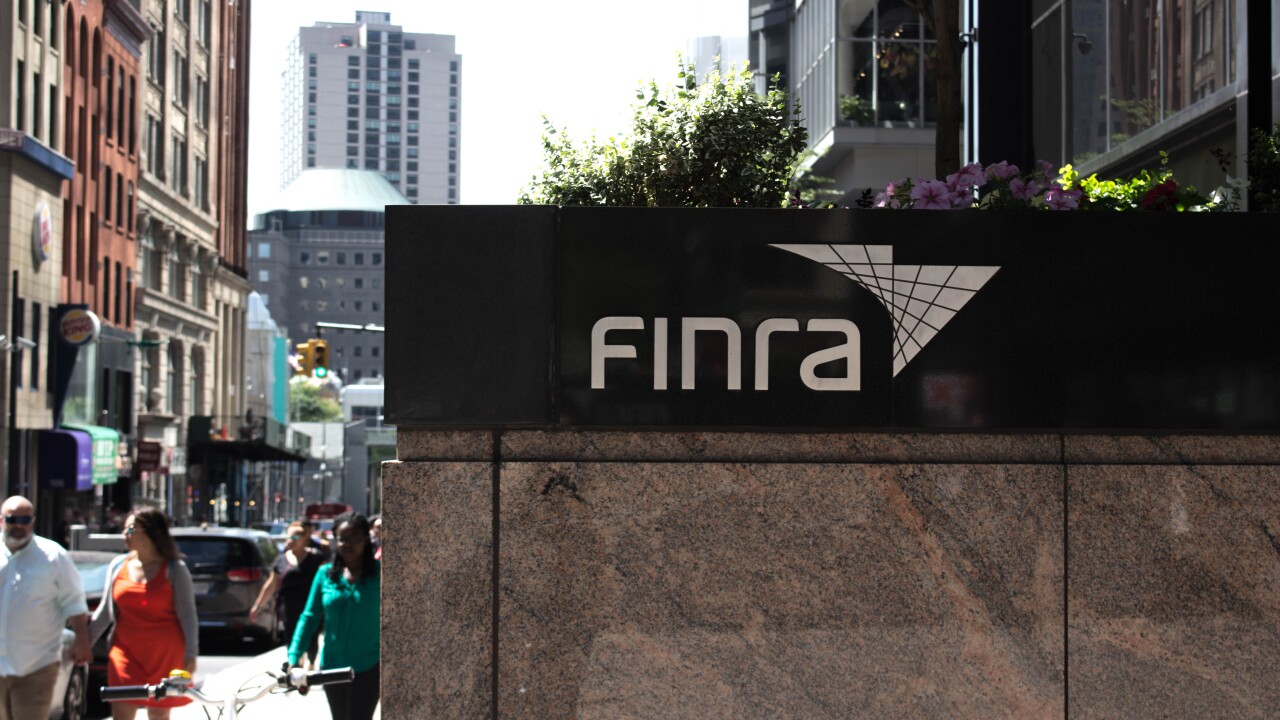
Milwaukee, Wisconsin-based wealth management firm
FINRA guidelines permit brokers to charge no more than five percent of the transaction value as a "fair or reasonable" commission and in some cases, less than that. Yet Baird charged minimum commission fees of $100 plus a handling fee, which resulted in clients paying anywhere from over 5% to as much as 93% of a transaction's principal value, according to
"For example, one customer purchased two shares of Apple Inc… for a principal amount of $772 and was charged a $100 commission, equating to 13% of the principal amount," FINRA said in the filing.
The average overcharge was around $37, and 7,277 equity transactions for 4,623 customers were affected, resulting in at least $266,481 in excessive charges, FINRA said in the letter, where it called the commissions "not fair and reasonable."
"Baird also did not establish and maintain a supervisory system reasonably designed to achieve compliance" with fee regulations, FINRA said. In response, it censured the firm, fined it $150,000 for the violations and ordered it to repay customers the $266,481 of fees, with interest. The company did not reply to requests for comment.
After a watchdog found problems with the regulator's examinations, the agency has repeatedly refused FP's requests for the details of them.
Employee-owned Robert W. Baird & Co., whose parent company Baird Financial Group reported
In a corrective action statement included with the filing, Baird said that after FINRA notified it of the violation in 2020, the firm "promptly modified its published commission schedule to eliminate the minimum commission amount and updated its written supervisory procedures to align with the new published schedule." Baird also "took steps" to repay defrauded customers, with an average refund of $57.64 per customer, and will "make efforts to ensure that it charges fair prices and commissions," it said.
Louis Straney, a consultant at Arbitration Insight and frequent expert witness in cases of investment misconduct, called Baird's sanction "a textbook case" of reverse churning, where investors are charged "for non-existent services." "You're simply collecting the fee to safeguard stagnant assets," Straney said of the practice.
Some in the industry think "reverse churning" applies only to advisors' asset management fees as opposed to broker transaction fees, but others say in practice, it's the same thing here. "Reverse churning is at its core, commissions and fees that are not fair or justifiable based on the account activity," Straney said.
Midsize wealth manager Kovack Securities and its CEO settled two matters last month dating to his time as a member of FINRA's Board of Governors.
Firms have been on notice for several years that reverse churning is a priority for regulators, Straney said, noting that it was easily preventable with modern account-monitoring software. In light of that, it was "unusual" for such an old problem to be resurfacing at a place like Baird, Straney said.
In 2014, the SEC issued a report where it called reverse churn an area of "
For brokers who may have also neglected to look at their management of fees, "the takeaway is that this is not a forgotten issue for the regulators," Straney said.
"They're willing to step up and impose severe penalties for folks who don't act in the best interest of the client."







